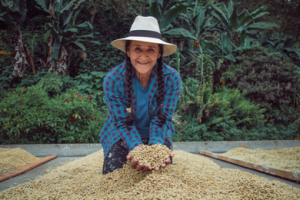Sustainable development goal 5 is to “achieve gender equality and empower all women and girls” or as it is shortened, to achieve “gender equality” by 2030. Although we know that currently, gender encompasses many terms, the United Nations is mostly referring to women and girls within this goal. However, to achieve the targets of this goal, not only women and girls need to be involved.

You can find an initiative of men standing for gender equality following this link. Or also, in this link, you can read about how men in a district in Rwanda have recognized that they can participate in household chores and are assisting in efforts to decrease stunting in children.
As the UN says, “gender equality is a fundamental human right” 1. Women and girls cannot make their own decisions in many fields. For example, globally, 750 million women and girls have been married before the age of 18. “In 18 countries, husbands can legally prevent their wives from working”, and “only 52 percent of women married or in a union freely make their own decisions about sexual relations, contraceptive use, and health care”.
Like other SDGs and every part of our lives, SDG 5 has been affected by the COVID-19 pandemic, and the progress achieved before the pandemic is now at risk of facing potential failure. During the pandemic, women ended up disproportionately taking care of children who could not physically attend school and/or of sick relatives (in comparison to men). Thus, leaving them with little to no time to work on issues that were not directly related to the household. Activities conducted by women and sometimes girls in a household, can (and should) be framed as a job and should be recognized, supported, and rewarded as such. Also, around “60 percent of women work in the informal economy, which puts them even at a greater risk of falling into poverty” 1. Further, the pandemic also brought an increase in violence against women and girls.
At the current pace, it will take another 40 years for women and men to be represented equally in national political leadership. This means that now, women’s voices are heard less when it comes to identifying issues that need to be discussed. Likewise, it highlights the fact that women need to be listened to more when it comes to identifying perspectives regarding how to analyze problems and propose solutions.

In my previous post, I already described the connection of gender equality to SDG 2: zero hunger. Women are often involved in determining the diet in a household, and encouraging and supporting them to be decision-makers can improve the nutritional status and health of the household members. Women, as the most frequent caretakers in the household, can also have an influence on children’s education, an SDG of which its importance has already been described by my colleague, Luca. In his post, he also talks about how more educated mothers are more likely to properly utilize healthcare services and learn relevant information, thus, positively impacting children’s health.
Progress in SDG 7, which promotes access to affordable, reliable, sustainable, and modern energy, also affects women’s and girls’ health. Women and girls are frequently in charge of cooking, which in many places happens with the use of fuels that create fumes that are unhealthy. The Circular and One Health approaches can guide us in identifying entry points for creating virtuous cycles, like the one I described in my post about SDG 2 regarding women smallholder farmers.
By: Olga Muñoz PhD | Adjunct Assistant Professor
References
1. United Nations Department of Economic and Social Affairs, Sustainable Development. Sustainable development goal 5. Published 2022. https://www.un.org/sustainabledevelopment/gender-equality/
 0
0
